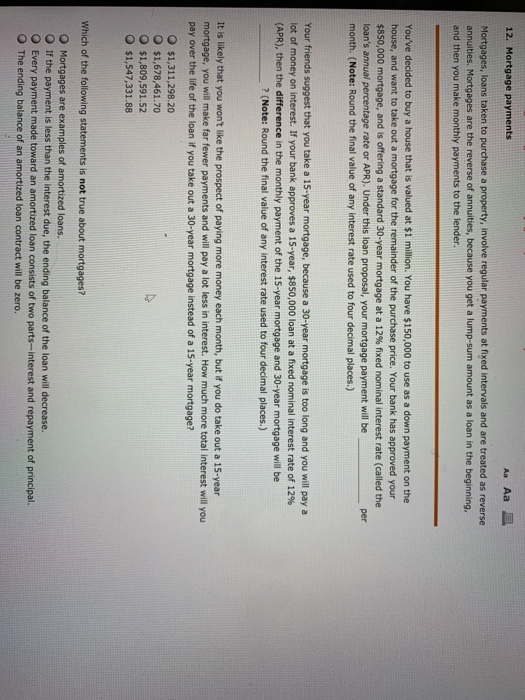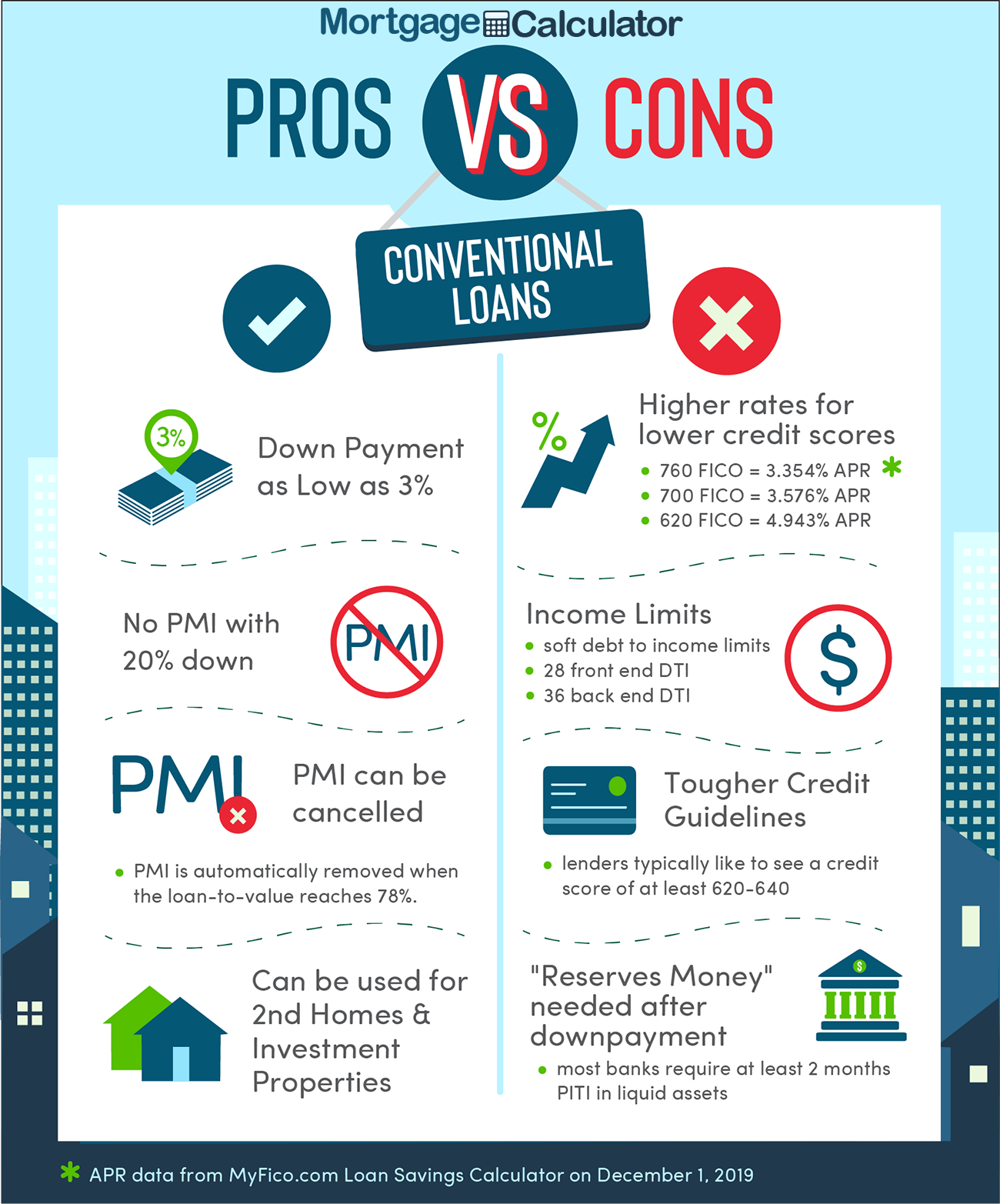Initially, let's go over what a reverse home loan is. A reverse mortgage is created to allow senior older house owners who own all or the majority of their property to withdraw some of the equity from the house for personal usage Recipients can pick to get the cash as a lump sum, in regular monthly installments, or as a line of credit.
As it is just offered to people over the age of 62, it is indicated to be the last loan an individual will receive on their home in their life time. A reverse home mortgage must be repaid when the property ceases to be the loan recipient's primary house. This can occur when the recipient moves, scales down, has actually been in the health center for over a year, or dies.
Normally, one of four things happens: 1. The recipient's life insurance coverage policy is utilized to pay off the balance of the reverse home mortgage. 2. The recipient's heirs sell the residential or commercial property and use the earnings to pay off the balance. If the property sells for more than the loan was worth, the heirs keep the staying equity.
3. The recipient's heirs refinance and secure a brand-new home loan on the house in order to keep the home. (It is possible to have both a reverse home loan and a regular mortgage on the same property, as long as the regular mortgage has a low loan balance). 4. If the beneficiaries take no action within the allocated time period, the bank will foreclose on the house to recoup the loan.
Fascination About What Is A Bridge Loan As Far As Mortgages Are Concerned
Be sure to look thoroughly at the terms of a reverse home mortgage prior to taking one out, as some loans can bring high costs and rates of interest.
If you take out a reverse mortgage, you can leave your home to your successors when you die, however you'll leave less of an asset to them. Your heirs will also require to handle paying back the reverse home loan, and they could deal with major problems while doing so, otherwise the lender will foreclose.
A "reverse" home loan is a particular kind of loan in which older property owners transform some of the equity in their house into https://www.timesharetales.com/blog/why-are-timeshares-a-bad-idea/ money. The money is usually distributed in the type of a swelling amount (subject to some constraints), month-to-month quantities, or a line of credit. You can likewise get a mix of monthly installments and a credit line.
This sort of loan is various from routine "forward" mortgages since with a reverse home mortgage, the lending institution pays to the house owner, rather than the homeowner paying to the loan provider. Since the homeowner gets payments from the lending institution, the property owner's equity in the residential or commercial property decreases in time as the loan balance gets larger.

Top Guidelines Of What Happened To Cashcall Mortgage's No Closing Cost Mortgages
With a HECM, the loan needs to be paid back when one of the following events happens: the borrower passes away the home is no longer the customer's principal house (or the customer leaves permanently or leaves due to health reasons for 12 successive months or longer) the borrower sells the house (or transfers title), or the customer defaults on the regards to the loan, like by stopping working to keep up with insurance premiums or real estate tax.
But they won't receive title to the residential or commercial property free and clear due to the fact that the property goes through the reverse mortgage. So, state the house owner dies after receiving $150,000 of reverse home mortgage funds. This indicates the successors inherit the home topic to the $150,000 financial obligation, plus any costs and interest that has accumulated and will continue to accrue until the debt is paid off.
1. Pay back the loan. (With a HECM, the beneficiaries can select to pay back 95% of the appraised value themselves and keep the home. FHA insurance will cover the staying loan balance.) 2. Sell the house and use the earnings to repay the reverse mortgage. (With a HECM, the heirs can sell the house for the total of financial obligation owed on the loan or a quantity that is at least 95% of the existing appraised worth of the property.) 3.
4. Do absolutely nothing and let the loan provider foreclose. According to an USA Today short article from December 2019, successors who wish to pay off a reverse home mortgage and keep the house typically deal with months of bureaucracy and disappointment when handling the loan servicer. Substandard loan maintenance practices often hinder what ought to be regular paperwork, debt computations, and communications with customers or successors.
Getting My What Percent Of People In The Us Have 15 Year Mortgages To Work
The servicer likewise designated the house as uninhabited and turned off the water in the name of property preservation, and set up a foreclosure sale. This scenario is not unusual. The U.S. Department of Housing and Urban Development (HUD), the regulator of HECMs, has standards that say servicers of these loans should notify survivors and heirs of their options and solve the loan within 6 months of a death.
If they're selling the property and it's still on the marketplace after six months, or they're still actively seeking financing, successors can call the servicer and request a 90-day extension, subject to approval by HUD. One more 90-day extension can be asked for, again with HUD's approval. However that guidelines don't avoid the servicer from pursuing a foreclosure throughout this time.
While you face delays or obstructions due to a problem with the residential or commercial property's title, an impending foreclosure, or an absence of details from the servicer, you'll have to spend for the house's upkeep, taxes, and insurance coverage, and interest and costs will continue to accrue on the debt while you attempt to exercise any of the above alternatives (why is there a tax on mortgages in florida?).
Reverse mortgages are made complex and are often not the best alternative for older property owners seeking access to additional cash. Before securing a reverse home mortgage and tapping into your house equity, you must be sure to check out all of the choices offered to you. For example, you may receive a state or regional program to lower your expenses or you might consider downsizing to a more budget-friendly home.

Things about In What Instances Is There A Million Dollar Deduction Oon Reverse Mortgages
aarp.org/revmort. Despite the fact that you'll need to finish a counseling session with a HUD-approved therapist if you wish to get a HECM, it's likewise highly advised that you consider speaking with a financial organizer, an estate planning lawyer, or a customer security lawyer before securing this kind of loan.
Upon the death of the customer and Eligible Non-Borrowing Spouse, the loan ends up being due and payable. The successors have thirty days from getting the due and payable notification from the lender to buy the home, sell the house, or turn the home over to the loan provider to satisfy the financial obligation.
Your beneficiaries can seek advice from a HUD-approved housing counseling firm or an attorney to find out more. Some beneficiaries might do not have funds to pay off the loan balance, and might need to offer the house in order to pay back the reverse mortgage. With a reverse mortgage, if the balance is more than the house deserves, your heirs don't need to pay the distinction.